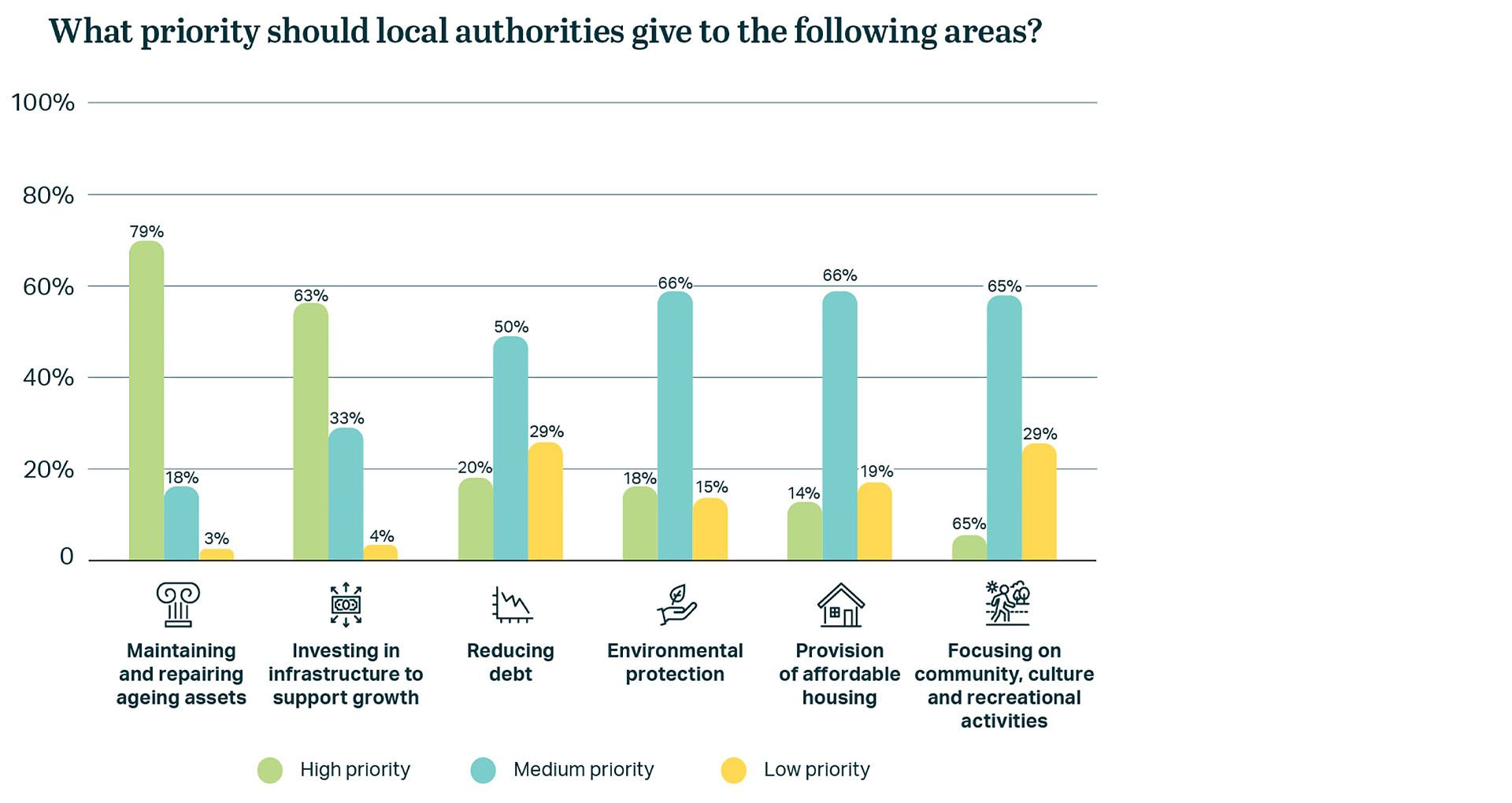Local government in New Zealand has undergone significant changes since our 2022 survey. The Future for Local Government review remains a key focus, addressing how local councils can tackle both current and future challenges, including sustainability, inclusivity, and effective governance. A central element of the review is updating local government structures to enhance transparency, accountability, and responsiveness to community needs. There is still a notable emphasis on strengthening partnerships with Māori communities and advancing leadership in climate adaptation. The review also highlights the need for improvements in service delivery and the financial sustainability of local councils.
New legislation, such as the Infrastructure Funding and Financing Act and the Urban Development Act, has been introduced to support these objectives. These acts aim to provide local governments with tools to address infrastructure development while tackling the historical underinvestment in critical services. A key priority is on long-term planning and the development of better funding mechanisms. This includes efforts to enhance resilience to climate change and natural hazards, supported by both national and local adaptation plans.
When asked about priorities for local authorities, a significant majority identified maintaining and repairing ageing assets and investing in infrastructure to support growth. These concerns reflect the poor state of New Zealand's ageing infrastructure, which has been increasingly strained by population growth over the past decade. As urban intensification continues, local governments must focus on preserving existing infrastructure and developing new assets to meet rising demands.
Respondents also highlighted the lack of reliable underground data as a major issue for infrastructure management. The absence of accurate and accessible mapping of underground utilities poses a significant challenge for planning, maintaining, and upgrading infrastructure, increasing the risk of costly disruptions. This issue has been highlighted in multiple reports, including those from the New Zealand Infrastructure Commission, which calls for improved data systems to ensure that infrastructure projects are efficient, safe, and sustainable.
